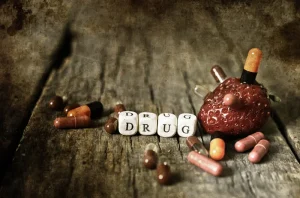
The continued use of alcohol causes changes in the central nervous system and neurotransmitter production in the brain. When the supply of alcohol is suddenly stopped or decreased, withdrawal symptoms can develop. Symptoms can range in severity, and it’s essential to have your symptoms https://ecosoberhouse.com/article/mash-sober-living-eco-sober-house-is-now-mash-certified/ evaluated by a medical professional. This may include medications, therapy, or both and can be offered in a variety of settings, both inpatient, outpatient, or a hybrid model.

Day 12
- Commonly abused products include gasoline, glue, paint thinner, nail polish, nail polish remover, and spray paint 2.
- However, try not to have too many firm expectations, as symptoms can continue for multiple weeks in some people.
- If untreated or inadequately treated, withdrawal can progress to generalized tonic-clonic seizures, delirium tremens, and death.
Alcohol withdrawal can range from very mild symptoms to a severe form, known as delirium tremens. The history obtained from our patient, and later his wife, made such precipitants as acute alcohol intoxication, and illicit drugs (including cocaine and cannabis) less likely, although no laboratory confirmation was sought. We postulate that alcohol withdrawal (or, less likely, toxicity) led to a sympathetic surge (including hypertension). This, in turn, disrupted cerebral vascular auto-regulation/endothelial function, which eventually culminated in PRES.
Mild Symptoms
However, it’s important to note that alcohol addiction treatment professionals can provide prescription medications to help relieve pain. By reducing withdrawal symptoms, you will be able to focus on recovery and getting better. In general, the course of alcohol withdrawal is highly variable and somewhat unpredictable. Screening and assessment tools do not allow physicians to predict with confidence who will or will not experience life-threatening symptoms.

Medications to Ease Withdrawal Symptoms

Alcohol affects multiple bodily functions that results in alcohol withdrawal when attempting to stop. First and foremost, excessive drinking excites and irritates the central nervous system. Alcohol has a sedative effect on the brain in which it suppresses certain neurotransmitters, causing people to feel at ease after drinking. This is why when consuming alcohol, people experience initial feelings of happiness, increased sociability, and relaxation. Supportive care – monitoring and frequent clinical reassessmentThis includes monitoring the vital signs, such as heart rate and blood pressure, as well as repeatedly checking glucose levels and alcohol concentration.
Alcohol is on alcohol withdrawal syndrome symptoms one side, slowing down central nervous system (CNS) activity. Your CNS controls your body’s automatic processes like breathing and heart rate. Your CNS is on the other side of the rope pulling back by increasing its own activity to keep things running. Over time, your CNS adjusts and sees that increased activity level as its new normal.
- People who experience severe withdrawal symptoms or DTs may require hospitalization or intensive care unit (ICU) treatment during alcohol.
- The risk of death is also higher if you have other severe medical conditions.
- „I’ve had aches in every joint, and even now, the periodic taste of alcohol in my mouth. It’s the taste of detox, I’m guessing. Already, I’m sleeping better, feeling better, though I’m a little spacey, and my skin already looks healthier.“
- When conducted under the supervision of medical professionals, alcohol withdrawal is a much safer and easier process.
- Outpatient rehab allows patients to attend to their daily responsibilities while in recovery.
- Alcohol withdrawal is caused by prolonged exposure to large amounts of alcohol and can therefore be prevented through abstaining from or at least strongly limiting one’s exposure to alcohol as to not develop an alcohol use disorder.
- For those seeking addiction treatment for themselves or a loved one, all phone calls are confidential and are available for 24/7 help.
Alcohol Withdrawal Syndrome: Symptoms, Causes, Treatment, and More
For mild alcohol withdrawal that’s not at risk of worsening, your provider may prescribe carbamazepine or gabapentin to help with symptoms. Patients presenting with alcohol withdrawal syndrome should receive thiamine and folate supplementation as they are often nutritionally deficient. Alcohol dependence, also known as ‘alcoholism’ or alcohol addiction, is serious and can lead to a range of health problems. People who are dependent on alcohol may experience a strong, often uncontrollable, desire to drink and feel they’re unable to function without alcohol. The more you drink on a regular basis, the more you’re likely to be affected by withdrawal symptoms. To keep health risks from alcohol to a low level, the UK Chief Medical Officers (CMOs) advise it is safest not to drink more than 14 units a week on a regular basis.

The authors of this case report argued that inhalant withdrawal symptoms can be clinically significant among heavy inhalant users, resembling the nature and severity of alcohol withdrawal symptoms. However, for some, the physical symptoms will continue even after seven days. If you’re still experiencing physical alcohol withdrawal symptoms after a week, you should contact your healthcare provider immediately. Whereas some experienced mild symptoms in the early days, others reported severe, sometimes frightening ones. Most of those who experience severe alcohol withdrawal symptoms do so because they’re going through their detoxification period „on their own“ without the benefit of medical help. Many people are hesitant to quit drinking because of the thought of experiencing uncomfortable withdrawal symptoms is scary.